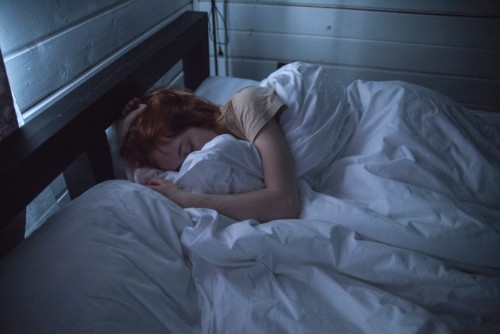Melatonin and Sleep
April 9, 2021Deep Sleep vs REM Sleep
May 8, 2021
6 Rituals that Will Actually Help you Sleep
1. Set a regular bedtime routine: Our brain is very sensitive to cues from our environment. If you set yourself a regular and predictable bedtime routine (example: brush teeth, wash face, turn on sound machine), your brain will be primed to being ready for bed when you begin the routine. This way, by the time your toes hit the sheets, your brain is already in shutdown mode.
2. Turn down the thermostat: Our core temperature actually drops while we sleep, and as such, a cool bedroom environment is optimal for promoting sleep. Ideal temperature is between 68 and 69 degrees.
3. Put the phone away: The blue light emitted by our phones, tablets and other devices actually tricks our brain into thinking it’s daytime. When this happens, the brain stops secreting melatonin–the natural chemical that induces sleep–because the brain thinks it’s time to be awake. Do your brain a favor and put your phone away at least 30 minutes before getting into bed (and ideally 30 minutes before beginning your bedtime routine).
4. Set a consistent bedtime and wake time: This is hands down the best thing you can do for your sleep. Your body runs on a biological clock called a circadian rhythm. By keeping a regular schedule around bedtime and wake time, you actually prime your body’s circadian rhythm to know when it’s time to go to sleep and time to wake up. I’ve been doing this for years and now I don’t need an alarm clock to wake up in the morning. My body just knows it’s time to wake up!
5. Have a small snack before bed: Eating too late in the day can throw off our circadian rhythm. Basically, the later we eat, our body thinks it’s time to be awake and digesting. However, going to bed on an empty stomach can also lead to sleep troubles. If you find yourself waking up hungry, experiment with eating a small, high-protein snack (example: string cheese or small glass of milk) just before bed.
6. Get out of bed if unable to fall asleep: One thing you do not want is to associate your bed with being awake. And if you lie awake tossing and turning because of insomnia, then your brain becomes conditioned to associate your bed with wakefulness. So instead, if unable to fall asleep within 15-20m (estimated, no need to stare at the clock), go ahead and get out of bed, go to another room and do something quiet for 15-20m. Then return to bed when you feel like sleep is going to overtake you. You may have to do this a couple times on really bad nights. But trust me, once you separate out spending any awake time in bed, your brain will begin to think only about sleep once you get into bed. And THAT’S a recipe for a good night’s sleep!
AND, if you have a more enduring issue with sleep and think you might need help, reach out to Dr. Hess for a free phone consultation to see if CBT for Insomnia might be right for you!





